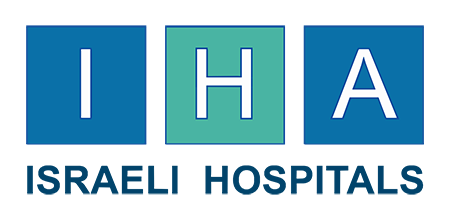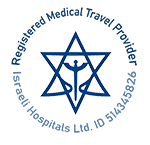Breast Cancer Treatment
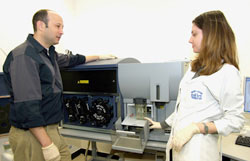
Breast cancer is the most frequently occurring cancer among women. As with many types of cancer, early detection of breast cancer is crucial to a favorable treatment outcome. That is one reason why we at Sheba Medical Cancer Center use state of the art imaging and other diagnostic techniques to find and classify breast cancer before it can spread. The department provides the patient with an innovative and integrated approach for the treatment of breast cancer at all stages of development.
In addition, the department patients are consulted by a gynecologist and geneticist. Clinical trials for the testing of new drugs are also performed within the breast cancer treatment department.
Breast Cancer Department Medical Staff:
Dr. Kaufman Bella - Head of Department.Expertise: Clinical Oncology, Radiotherapy and Breast Cancer Research activities: Neoadjuvant therapy in the fight against breast cancer, a study of the disease among patients carrier gene mutation HER-2, the effect of Tamoxifen on the hormones of young women. |
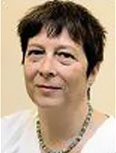 |
Dr. Alberto Goldfarb - Branch of Breast Cancer Treatment Clinic |
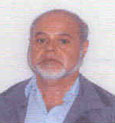 |
Dr. Shimon Paluh – Honorable noted for contributions in the fight against breast cancer |
Other notable personnel who work alongside the doctors at Israel’s Chaim Sheba Hospital Breast Cancer Department include nurses, coordinators, social workers, psychologist, and dieticians.
The responsibility of department personnel is to meet all the needs of patients; to provide assistance and support at all stages of the disease, and emergency treatment of diagnosis of breast cancer. Therefore, the unit staff includes medical oncologists, gynecologists, genetics counselors, social workers and psychologists. The course of treatment may also involve orthopedist and neurologist specializing in oncology. These teams of medical personnel are specialist in diagnostic procedures that are unique to women with breast cancer.
Early Treatment of Breast Cancer

The main treatment for breast cancer, as a rule, is to have surgery to remove any tumors.
The procedure involves excision of the breast cancer in which all or part of the affected tissue is removed. Tumors, which are localized within the mammary gland, without the appearance of secondary lesions are completely removed surgically. In most cases, surgery is performed by lumpectomy, which is an immediate removal of the tumor mass while preserving the breast. Mastectomy, which is the removal of the entire breast, is rarely recommended.
Lymph Nodes
Beyond the removal of the tumor in a patient with breast cancer, it is necessary to determine whether the tumor has spread to the lymph nodes of the armpit. Diagnosis of the presence of secondary foci, carried out by using simple tests, usually requires a biopsy. The procedure involves taking a sample of the lymph node from the armpit on the side of the chest that is affected by the tumor. Typically, the sample is taken during the surgery to remove the tumor (lumpectomy).
This operation may be performed in one of two different procedures:
- Axillary lymph node dissection - a total axillary lymph node dissection, which means the complete removal of all lymph nodes in this area.
- Sentinel lymph node dissection - a partial axillary dissection, which means removing the most suspicious lymph node. This is the most conventional method to date both in at Chaim Sheba Hospital and in most major medical centers.
Removal of lymph nodes is one of the primary tasks to prevent the spread of breast cancer, but more important is the choice of further treatment. Chaim Sheba Hospital, one of the largest hospitals in Israel, offers the high quality postoperative care for breast cancer patients.
Postoperative Treatment

In a small percentage of patients who have had cancerous tumors removed the cancer may return after several months or years. The return of the disease and the appearance of tumors may occur in the breast, and then the treatment is to remove the entire breast. Relapse may occur, as in other organs - the development of secondary lesions metastasized.
Adjuvant Therapy
Adjuvant therapy is any additional cancer treatment given after the primary treatment to lower the risk that the cancer will come back. Adjuvant therapy may include chemotherapy, radiation therapy, hormone therapy, targeted therapy, or biological therapy. Each of these cancer-fighting therapies is available at Israel’s Chaim Sheba Hospital Cancer Center.
To prevent or reduce the risk of relapse, in many cases, additional treatment is offered. The essence of the additional treatment is that, despite the lack of visible signs of the disease, carried out primary treatment (surgery) and additional auxiliary treatment that removes microscopic cancer cells to prevent relapse in the future.
However, it is not possible to give an accurate forecast of the further development of the disease. Therefore, the decision about additional treatment is taken into consideration for each patient individually, based on statistical data collected earlier in the treatment of thousands of patients. Adjuvant therapy is available at Cham Sheba Hospital, Israel’s foremost hospital for cancer treatment. Adjuvant therapy may include one or more of the following treatment for cancer.
Radiation Therapy
Radiation therapy - this is an additional post-operative therapy, which is currently proposed for almost every patient suffering from breast cancer, this procedure is very effective step toward prevention of the return of the tumors with the same location of the body. In most cases, the radiation is exposed only to breast area however; some patients may require radiation therapy for the lymph nodes as well. Treatment is administered daily for 7 weeks. This is a highly effective treatment - the risk of the return of the disease is reduced by one third.
Side effects are usually minor: a slight reddening of the skin, feeling of weakness or fatigue. Other side effects may include hair loss, nausea, vomiting and burns on the skin.
It should be noted that the risk of relapse after lumpectomy and irradiation is higher than after mastectomy.
Hormone Therapy
The development of breast cancer can often depend on the influence of female sex hormones. In these cases medications are available that blocks the activity of hormones and thus reducing the risk of cancer.
Standard treatment is the drug Tamoxifen, which is taken once a day for 5 years. If the patient display any signs of breast cancer in postmenopausal, treatment will be slightly different.
In such situations, after two or three years of taking the drug Tamoxifen, there are additional drug therapies available such as Femara (letrozole), Arimidex (anastrozole), and Aromasin (exemestane).
Hormone therapy can cause side effects: hot flashes, osteoporosis, mood changes, but most of them are easily surmountable. Hormone therapy is very effective treatment that also reduces the risk of cancer recurrence nearly half.
Chemotherapy
In cases where the risk of cancer returning is very high, as a rule, chemotherapy recommended. Compared with hormonal and radiation therapy, chemotherapy, tends to give more side effects.
Side effects of chemotherapy include but are not limited to nausea, vomiting, hair loss, decreased immune function, fatigue and weakness. Side effects of infertility in women are unknown at this time however, at Chaim Sheba there are several reliable methods of fertility preservation offered. Fortunately, modern Israeli Pharmacology offers a large number of cancer treatment medications and prevention of side effects of chemotherapy. These medications are used widely at Chaim Sheba Cancer Center.
Secondary (adjuvant therpy) Chemotherapy to Combat Breast Cancer
The Institute for breast cancer medical center at Chaim Sheba of Israel usually suggests one of two protocols.
-
- AC:
- A combination of two drugs, Adriamycin and cyclophosphamide, that is taken within a certain sequence within a strict protocol.
-
- AC-T:
- A combination of three drugs Adriamycin, Cyclophosphamide and Taxol, that is taken within a certain sequence within a strict protocol.
Deciding on the Need for Auxiliary Chemotherapy
One important aspect in deciding whether to initiate treatment by chemotherapy is the risk factors involved for each individual of the cancer returning. Planning is based on the following criteria, which can be evaluated to determine the risk of cancer cells returning.
- The presence of cancer cells in lymph nodes
- Size of breast tumors
- Age of the patient (the younger, the higher the risk of recurrence)
- Nature of the tumor and its growth (GRADE and STAGE)
- The presence of estrogen receptors and progesterone
- Presence of a specific gene (HER2)
Evaluation is usually done by the attending oncologist and is based both on his own experience and the experience gained at the Institute for breast cancer.
Within Israel’s Chaim Sheba Hospital Breast Cancer Department, the medical history of each new patient is received by a general council of experts under the guidance of Dr. Kaufman. The main purpose of the consultation is to assess the risk of recurrence, as well as making decisions about the choice of method of chemotherapy, corresponding to a specific pathology.
Estrogen receptor (ER) - a protein found on tumor cells, which can be attached molecules of the hormone estrogen. This protein is also known as HER 2. The concept of "ER-positive" means that cancer cells are sensitive to female hormone estrogen, and this hormone has an impact on the progression of the cancer.
Testing for hormone receptors - a series of laboratory tests that determine the dependence of the development of cancer of the breast from the influence of female hormones, estrogen and progesterone.
Herceptin
When the cancer results display largely expressed proteins, called HER - 2, then the chemotherapy is carried out in conjunction with the drug Herceptin, which consists of antibodies that act directly on cancer cells and blocking protein HER - 2. Treatment is carried out by intravenous injection and lasts for a year on an individually constructed by the program for each patient.
Biological therapy - Lapatinib (Taykerb)
For treatment of breast cancer with a positive test for HER - 2, there is a number of new drugs. Newly manufactured and successfully tested a new drug from a family of inhibitors - Lapatinib Tyrosine Kinase. This drug inhibits the function of two receptors, HER-2 and HER-1.
The Department of Breast Cancer Medical Center located at Chaim Sheba Hospital is the world''s leading clinical trials of new drugs. Data from one of the important research was recently published in the British Medical Journal, The New England Journal of Medicine (December 2006).
This study tested the effectiveness of combination drug Lapatinib with standard chemotherapy compared with treatment by only standard chemotherapy in women with breast cancer metastases in the background, which gave a positive HER2 and undergoing treatment with Herceptin.
Indeed, the results were revolutionary. The method of chemotherapy in combination with the drug Lapatinib in breast cancer cases, resulted in metastases significantly reduced cancer progression.
Inflammatory Breast Cancer
Inflammatory breast cancer is a particularly aggressive type of cancer. The cutting-edge research department at Israel’s Chaim Sheba Hospital Cancer Center has undertaking studies to develop an innovative treatment method that can significantly alter the course of the cancer.
The order of treatment
Chemotherapy is usually assigned in the postoperative period. Radiation therapy is performed after chemotherapy or after surgery if chemotherapy is not included in the treatment program. Hormone therapy is used after the completion of chemotherapy and radiotherapy.
Neoadjuvant treatment
As mentioned above, an auxiliary treatment is sometimes given - chemotherapy before surgery to remove a tumor, which is a type of neoadjuvant treatment. The purpose of this treatment is with the intention to reduce the size of the tumor before surgery, and thereby increase the chances of a successful operation.
Chemotherapy before surgery can also monitor the response of breast cancer treatment, to determine how effective the treatment is, and sometimes replace it if necessary.
Onkoteyp is laboratory testing performed with samples taken from the tumor and examined at the molecular level. This innovative method is used for estimating the level of risk for cancer patients relapses. The results of Onkoteyp assists the staff of Chaim Sheba Hospital Breast Cancer Center in determining the best treatment and care for patients.

